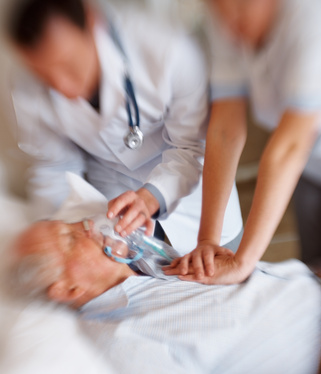With all the recent concerns about health care in America there is one bit of good news; people are receiving emergency heart care much faster than they used to and when it comes to a heart attack emergency response time can be the difference between life and death.
According to a study published in Monday’s Circulation most hospitals in the US are now able to treat heart patients in need of emergency procedures within the recommended 90 minutes greatly reducing the risk of death.
Researchers looked at over 300,000 patients that were treated with an emergency angioplasty between 2005 and 2010. Angioplasty is an emergency procedure that widens an obstructed blood vessel allowing blood to flow back to the heart. This procedure all ways needs to be performed quickly as the longer the patient waits the greater their risk of death. The study found that 91% of patients treated in 2010 were treated in under 90 minutes compared with only 44% in 2005. They also found rthat 70% were treated within 75 minutes in 2010 compared to only 27% in 2005. These days the median time for treatment is just 64 minutes, greatly increasing a patients chances for survival.
Thanks to research done both by the government and private groups hospitals have been able to learn how to shorten treatment times and have accepted the importance of doing just that. It is unusual for these kinds of achievements in health care to be completed with out financial incentive or fear of regulation or punishment making this achievement that much more outstanding.
Every year ion the U.S. around a quarter million people suffer from a major heart attack caused by a main artery becoming completely blocked so it is important to know the warning signs and when to seek treatment. If you feel any of the following symptoms you should call 911 right away:
- Pressure, burning or chest tightness brought on by exertion
- Radiating pain in the arm, jaw or neck
- Extreme fatigue and breathlessness
Of course the best way to protect yourself is to try and take preventative measures to protect your heart health. The American Heart Association offers the following advice:
- Eat a healthy, well balanced diet
- Watch your cholesterol
- Treat high blood pressure
- Get plenty of exercise
- Maintain a healthy BMI
- Take care of your diabetes
- Manage your stress
- Quit Smoking
- Limit Alcohol Intake
While taking these measures can greatly reduce your risk of heart disease the truth remains that nearly half of all deaths from heart attack occur in people with no prior symptoms. Luckily with the great strides being made in the medical community to repond and treat quickly when there is a cardiac event hopefully many lives can be saved.








